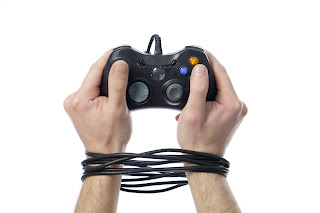Gaming as a Mental Illness
To some people gaming is seen as sitting alongside the
television in order to experience the content made by the developers, and to
control the animated graphics shown on screen. Well, to some other people it
seems that gaming carries a certain risk especially when he plays long hours
sessions. These views where heard way back when home consoles, and computers
began to go mainstream in the 1970’s and 1980’s but no attention was paid until
this year.
 |
| © Gamer Zone |
TVM also
raised an awareness about this condition where Mental Health Commissioner, Dr
John Cachia stated that gaming even as a recreational activity can become a
serious problem especially when it conflicts with other interests.
“If you have a boy who spends a whole day in digital gaming you have a lifelong problem. If you have a youth, for example with regards to a job, study, relations with others; these are affected as the person concentrates only on gaming”.This announcement urged gamers to keep track of their actions since some gaming industries are likely to profit from these ‘gaming addicts’.
In fact Dylan Seychell, a researcher at the Information Technology Faculty of the University said that gaming designers may assist those who play games not to exaggerate during their hobby. He said that it is in the financial interest of the companies that when they design gaming they uphold these values so that people play games in a responsible wayTherefore are the people who buy video games at fault for their addiction? Or is the gaming industry at fault for encouraging addiction in the first place?

Comments
Post a Comment